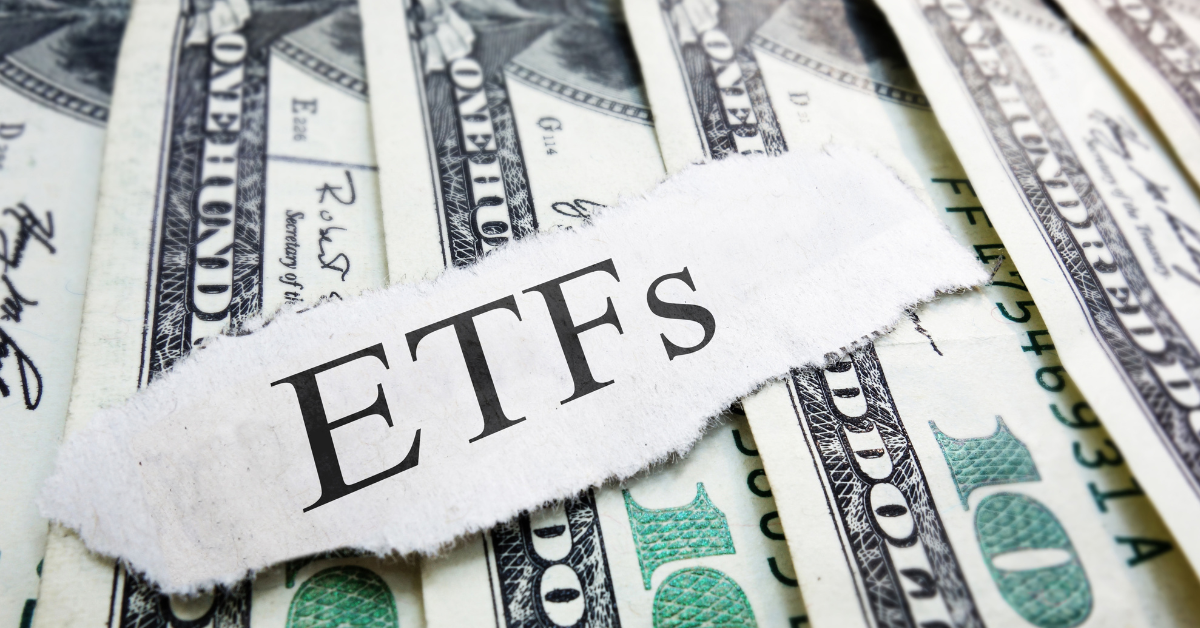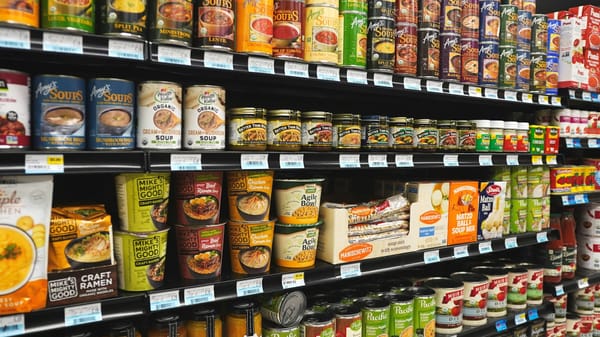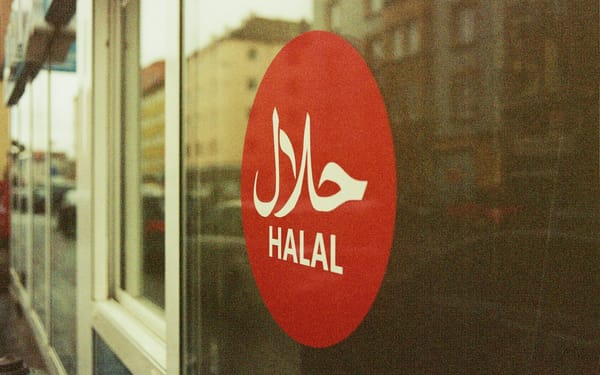Halal ETF investing: Complete Guide

Key Takeaways
An ETF also known as Exchange Traded Fund is a combination of financial securities that is like a stock and is traded on a stock exchange.
ETFs can be halal or haram. Investing in a certified Shariah-compliant ETF is the safest way to invest if you are a beginner.
Halal ETFs can include commodities, stocks, and holdings in numerous companies based in the U.S or spread across the globe. They provide the right diversification that minimizes the overall risk.

What are ETFs?
An exchange-traded fund (ETF) is an investment security that can include several stocks, bonds, commodities, or other assets. The ETF is a basket of securities that can contain an individual commodity such as gold or a bunch of securities such as the S&P 500 index.
So, an ETF can track the price of a commodity, sector, index or several assets. For instance, an ETF focused on the banking sector will comprise of stocks of several banks. And a global silver mining-focused ETF can include the stocks and bonds of various silver mining companies from all over the world.
ETFs can be bought or sold on a stock exchange. The price of the ETFs therefore fluctuates during the day depending on the trade volume of the security. ETFs are an excellent investment choice for individuals who want to diversify their investment.
ETFs are very similar to mutual funds that allow investors to invest in a diverse portfolio without having to buy multiple securities and worry about managing them. But unlike mutual funds that are traded once a day, the ETFs are constantly bought and sold on a stock exchange. ETFs also have lower fees and broker commissions as compared to mutual funds.
Are ETFs Halal?
ETFs can be halal or haram, depending on which financial securities they invest in. There are many certified Halal ETFs in the market that are deemed permissible by Shariah finance consultants. For example, Wahed Dow Jones Islamic World ETF is one of the halal index funds that track the Dow Jones index. If you want to be 100% sure that you are investing in a halal ETF, you should stick to investing in such Halal ETFs only.
The ETFs are deemed Shariah-compliant by Shariah finance consultants such as Yasaar Ltd. Because the views of different Islamic scholars vary, the Shariah finance consultants and Accounting and Auditing Organization for Islamic Financial Institutions represent all the major Islamic schools of thought.
How to Check if an ETF is halal?
If you want to invest in a regular ETF that does not mention if it's Shariah-compliant, you’ll have to do some research on your own. Because halal investing decisions require Muslims to invest according to Islamic principles, it also means that companies in which you invest should also conform to those principles.
For an ETF to be Shariah-compliant, it should invest in stocks (not bonds) of companies that do not drive more than 5% of their income from alcohol, tobacco, weapons, pork, banking, or insurance that involves interest, gambling, or adult entertainment. Or the ETF should represent no more than 5% of such companies. This means that 95% of the ETF’s investment is Shariah-compliant or in companies that are Shariah-compliant.
Manually screening the investments of an ETF can be extremely difficult as one ETF can hold investments in a range of businesses and industries. Therefore, the best way to save time and have peace of mind you should invest in Shariah-compliant ETFs.
Should I invest in ETFs?
ETFs are a great way to start investing with low capital. If you are a beginner, ETFs can provide the right diversification that minimizes risk and lets you invest with confidence. Without having to make your own portfolio, or pay to make one for yourself, you can benefit from a portfolio that was put together by industry experts.
Numerous investors rely on ETFs because they track large chunks of the market and offer significantly safe returns. ETFs can be bought and sold on an exchange at any time, so you can trade them easily. You can purchase a halal ETF through a broker or a broker account.
Before you begin investing in ETFs, it is important to be aware of the risks of ETFs. Some ETFs have a high expense ratio meaning that to retain the ETF, you’ll have to pay a high cost every year. According to experts a ratio of no more than 0.75% for an actively managed portfolio is good while 1.5% or above is too high.
Top 5 Shariah compliant ETFs
1.Wahed FTSE USA Shariah ETF (HLAL)
The Wahed FTSE USA Shariah ETF is listed on NASDAQ and tracks the performance of the FTSE Shariah USA Index. It constitutes 224 stocks from US-based companies conducting business activity as per Shariah principles.
The technology sector makes constitutes 37.4% of the Wahed FTSE USA Shariah ETF. The top 10 holding companies are Apple Inc., Tesla Inc., Johnson & Johnson, Procter & Gamble Co., Exxon Mobil Corp., Pfizer Inc., Eli Lilly & Co., Chevron Corp., Merck & Co Inc., and Thermo Fisher Scientific Inc.
In 2021, Wahed FTSE USA Shariah ETF had a 0.8% dividend yield and a total annual return of 28.59%. The ETF also has an ideal expense ratio of 0.50%.
2. Wealthsimple Shariah World Equity Index ETF (WSHR)
The Wealthsimple Shariah World Equity Index was launched in 2020 by Wealthsimple Inc on NEO Stock Exchange. It is the first Canadian Shariah-compliant halal ETF that also offers a low expense ratio of 0.50%.
The consumer staples industry constitutes a major portion of 13.9%. Followed by Industrials and Healthcare which constitute 13.8% and 12.6%.
The top 10 holding companies of the Wealthsimple Shariah World Equity Index are Nestle SA, Hong Kong & China Gas Co Ltd, CLP Holdings Ltd, Beiersdorf AG, McDonald's Holdings Co Japan Ltd, Givaudan SA, Singapore Telecommunications Ltd, Waste Connections Inc, SGS SA, and Wolters Kluwer NV.
3. Wahed Dow Jones Islamic World ETF (UMMA)
Wahed Dow Jones Islamic World ETF launched in January 2022 on the NASDAQ, is an actively managed ETF. It tracks the Dow Jones Islamic Market International Titans 100 Index and invests in developing and emerging US-based markets.
Wahed Dow Jones Islamic World ETF is an ESG-aware ETF, meaning that the investment portfolio is made up of Environmental, Social, and Governance-aware investments.
The ETF also offers a very low-cost expense ratio of 0.65%.
Currently, the ETF invests in 102 holding companies spread across 21 countries. The IT sector comprises a major portion of the ETF.
The top 10 holding companies are Taiwan Semiconductors Manufacturing Co., Samsung Electronics Co., Rogers Corp., ASML Holding NV, Nestle SA, Tencent Holdings Ltd, Novo Nordisk A/S Class B, Roche Holding Ltd, JD.com Inc, Novartis AG, and JD.com Inc.
4. SP Funds S&P500 Shariah Industry Exclusions ETF (SPUS)
SP Funds S&P500 Shariah Industry Exclusions ETF was launched on the NYSE Arca in 2019. It was co-developed by SP Funds and S&P Dow Jones Indices LLC.
It tracks the performance of the S&P500 Shariah Industry Exclusions Index. The ETF has a low net expense ratio of 0.49%. The technology sector constitutes a significant chunk of 40.79%.
The top 10 holdings of this Sharia-compliant ETF are in Apple Inc., Microsoft Corporation, Alphabet Inc– Ordinary Shares – Class A, Alphabet Inc – Ordinary Shares – Class C, NVIDIA Corp, Tesla Inc, Home Depot, Meta Platforms Inc – Ordinary Shares – Class A, Procter & Gamble Co., and Johnson & Johnson.
5. SP Funds Dow Jones Global Sukuk ETF (SPSK)
The SP Funds Dow Jones Global Sukuk ETF provides exposure to the U.S. dollar-denominated investment-grade sukuk. Sukuk are financial certificates just like bonds but they are compliant with the globally accepted Shariah investment principles.
SP Funds Dow Jones Global Sukuk ETF is listed on the NYSE Arca. The net expense ratio of this ETF is 0.65%. It offers a $0.3 dividend on monthly basis.
The top 10 holdings are in KSA Sukuk Limited, KSA Sukuk Limited, SA Global Sukuk Limited, KSA Sukuk Limited, Perusahaan Penerbit SBSN Indonesia III, Perusahaan Penerbit SBSN Indonesia III , Perusahaan Penerbit SBSN Indonesia III, KSA Sukuk Limited, IsDB Trust Services and SA Global Sukuk Limited
Pros and cons of ETFs
Pros:
Diversification: Buying a single ETF gives you exposure to several equities, an index, or industry.
Trades Like a Stock: ETFs can be traded like stocks on a stock exchange.
Lower Fees: ETFs have lower expense ratios as compared to mutual funds. Some Halal ETFs have expense ratios as low as 0.50%.
Low Capital Gains Tax: ETFs can be a little more tax-efficient than mutual funds because the ETFs are passively managed and generate less capital gain distributions.
Cons:
Less Diversification: Some ETFs only comprise large-cap stocks in a market index. In such a case, ETF investors could miss out on potential high-growth opportunities from small-cap companies.
Higher Costs: The ETF management fee can be higher compared to owning a stock.
Conclusion
To make sure that you are investing in a halal venture, you should invest in a Shariah-compliant ETF. You can also invest in other ETFs if they meet the Shariah principles. However, there is no sure way to check if an ETF is Shariah-compliant unless it is approved by Sharia finance consultants or the Accounting and Auditing Organization for Islamic Financial Institutions.
ETFs have a variety of benefits such as low-cost expense ratios, tax savings, and diversification, that make them one of the best financial securities for beginners. It also allows investors to trade with confidence as the risk profile is significantly lower than stocks.





